Pilot & Feasibility Program

The UCLA Goodman-Luskin Microbiome Center invites applications for the Pilot and Feasibility Core Voucher Program. Funding will be available for multiple innovative microbiome research proposals involving services from a center core facility.
We are no longer accepting applications for the pilot and feasibility study awards.
Awardees
Integrating microbiome research into undergraduate education
Investigator: Tejas Bouklas, PhD
Funding: $10,000; January 1 - December 31, 2026
Core usage: Biorepository, Microbiome
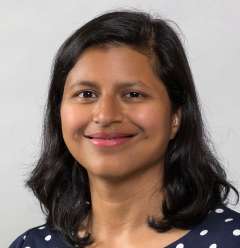
Dr. Bouklas is a broadly trained microbiologist focusing on host-pathogen interactions. She provides experiential learning and mentoring opportunities to her students, who conduct research in her classroom on phage therapy (HHMI SEA-PHAGES), antimicrobial discovery (Tiny Earth Initiative, CaleDNA), and most recently their gut/oral microbiome (Goodman-Luskin Microbiome Center). Bouklas Lab
Neural interoception of alterations in the gut microbiome
Investigator: Elaine Y. Hsiao, PhD
Co-investigators: Arpana Church, PhD; Celine Son, PhD
Funding: $10,000; January 1 - December 31, 2026
Core usage: Neuroimaging

Dr. Hsiao leads a laboratory studying fundamental interactions between the microbiome, brain and behavior, and their applications to neurological disorders. Inspired by the interplay between the microbiota and nervous system, the Hsiao laboratory is mining the human microbiota for microbial modulators of host neuroactive molecules, investigating the impact of microbiota-immune system interactions on neurodevelopment and examining the microbiome as an interface between gene-environment interactions in neurological diseases. Hsiao Lab
Deciphering the effect of phage-encoded bile acid metabolism in the human gut microbiome
Investigator: Antonio Tinoco Valencia, PhD
Funding: $10,000; January 1 - December 31, 2026
Core usage: Biorepository; Microbiome

The overarching goal of the Tinoco group is to discover, control, and engineer microbial chemistry to uncover how microbiomes affect human and ecosystem health. We bridge this gap by integrating interdisciplinary approaches taken from chemistry, enzymology, microbiology, and biological engineering. They also apply bioinformatic and AI tools to help inform their discoveries and hypotheses. Tinoco Lab
Does the microbiome mediate impact of scheduled feeding
Investigator: Christopher S. Colwell, PhD, Department of Psychiatry and Behavioral Sciences
Funding: $10,000; May 1, 2025 - April 30, 2026
Core usage: Gnotobiotics
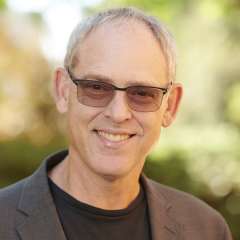
Since joining UCLA, Dr. Colwell's research has focused on understanding the mechanisms underlying circadian rhythms in mammals. Dysfunction in the timing these daily cycles is a key symptom in a number of neurological and psychiatric disorders. Better understanding the basic biology of this timing system should result in new therapies to improve the quality of life of these patients and the people who care for them.
Dysbiosis of the skin microbiome in patients with dermatomyositis
Investigator: Huiyang Li, PhD, Department of Molecular and Medical Pharmacology
Co-investigator: Sangmee Bae, MD, Department of Rheumatology
Funding: $10,000; May 1, 2025 - April 30, 2026
Core usage: Microbiome
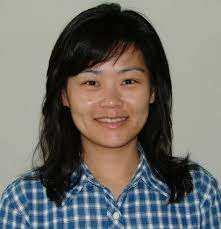
The current research in Dr. Li’s lab focuses on understanding the human microbiome, the collective genome of trillions of microorganisms residing in the human body, and its interactions with the host in relation to human health and diseases. Using multi-disciplinary approaches, including genomics, metagenomics, bioinformatics, high-throughput sequencing, microbiology, and biochemistry, the Li Lab aims to identify the molecular mechanism of the human microbiome in health and disease pathogenesis and to develop diagnostic markers and therapeutics for microorganism-related human diseases. By combining computational and experimental approaches, the ultimate goal of the research is to understand the human-microbiome symbiotic system at both molecular level and systems level. Dr. Li's Profile
Effects of reactive oxygen species from a novel sunscreen on skin microbiome
Investigator: Paul S. Weiss, PhD, Chemistry & Biochemistry; Bioengineering; Materials Science & Engineering
Co-investigator: Ajoa Addae, Graduate student researcher
Funding: $10,000; May 1, 2025 - April 30, 2026
Core usage: Microbiome
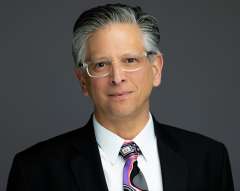
Dr. Weiss' interdisciplinary research group includes chemists, physicists, biologists, materials scientists, mathematicians, bioengineers, electrical and mechanical engineers, computer scientists, clinicians, and physician scientists. They focus on the ultimate limits of miniaturization, exploring the atomic-scale chemical, physical, optical, mechanical, electronic, and spin properties of surfaces, interfaces, supramolecular, and biomolecular assemblies. They develop new techniques to expand the applicability and chemical specificity of scanning probe microscopies. They apply these and other tools to study self- and directed assembly, and molecular and nanoscale devices. They advance nanofabrication down to ever smaller scales and greater chemical specificity to operate and to test functional molecular assemblies, and to connect to the chemical and biological worlds in neuroscience, gene editing, cancer immunotherapy, tissue engineering, cellular agriculture, and the microbiome. Paul Weiss Lab
Investigation of the regulatory effects induced by the integration of nanoparticle
Investigator: Yu Huang, PhD, Department of Materials Science and Engineering
Co-investigator: Yang Liu, PhD, Department of Statistics
Funding: $10,000; May 1, 2025 - April 30, 2026
Core usage: Integrative biostatistics and bioinformatics; Microbiome
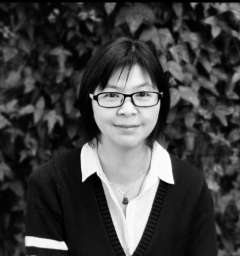
Dr. Huang’s group explores the unique technological opportunities that result from the structure and assembly of nanoscale building blocks. Taking advantage of the unique roles of nanoscale surfaces and interfaces, our group is creating methodologies to apply the latest developments in nanoscale materials and nanotechnology for probing nanoscale processes that can fundamentally impact a wide range of technologies including materials synthesis, catalysis, fuel cells, and devices applications. Huang Research Group
Leveraging M13-phage-synthesized silver nanoparticles (Ag NPs) for combatting resistant bacterial infections and their impact on the microbiome
Investigator: Irene Chen, A. Chen, MD, PhD, Department of Chemical and Biomolecular Engineering
Co-investigator: Katherine McCarthy, Graduate student
Funding: $10,000; May 1, 2025 - April 30, 2026
Core usage: Microbiome

Dr. Chen's laboratory studies life-like biochemical systems to understand their fundamental properties and address emerging challenges in biotechnology and infectious disease. Their focus is biomolecular design and evolution in two nanoscale systems: simple synthetic cells and bacteriophages (phages). The Chen Laboratory
The microbiome and immune response in acute Dengue infection in the Amazon of Peru
Investigator: Courtney DeCan, MD, MPH, Department of Medicine
Co-investigator: Jennifer A. Fulcher, PhD, Division of Infectious Diseases, Department of Medicine
Funding: $10,000; May 1, 2025 - April 30, 2026
Core usage: Biorepository; Microbiome
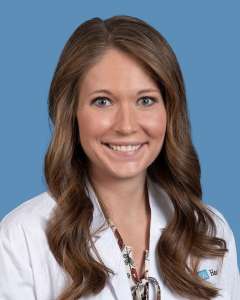
Dr. DeCan's primary areas of clinical practice are the treatment and prevention of obesity and diet related chronic disease. Her practice focuses on using nutrition therapy for the prevention and treatment of cancer, gastrointestinal conditions, obesity, obesity-associated diseases, and metabolic conditions including diabetes, high cholesterol, and cardiovascular disease. Her research focuses on addressing health disparities in the prevention and treatment of obesity and diet related comorbidities in the safety net setting. She also has an interest in global health and has worked throughout Latin & South America.